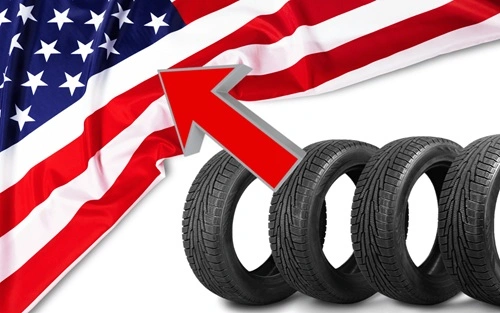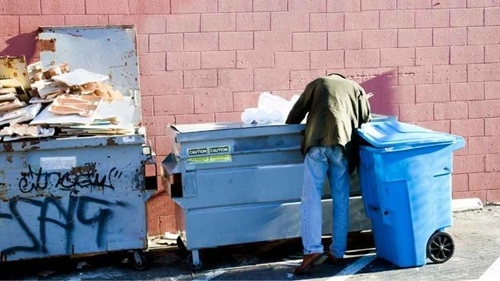Burning old tires might seem like an easy way to get rid of unwanted rubber, but in the United States, it’s generally illegal and highly dangerous. Federal and state laws strictly regulate — and in most cases prohibit — the open burning of tires due to serious health, safety, and environmental risks. Let’s break down what the law says, why it exists, and what can happen if someone ignores it.

Federal Law: EPA Rules on Tire Burning
At the federal level, the U.S. Environmental Protection Agency (EPA) oversees air pollution control under the Clean Air Act (CAA). While there’s no single federal statute that uses the phrase “it is illegal to burn tires,” the EPA’s regulations effectively make open tire burning unlawful in almost every situation.
Under 40 CFR § 60 and related sections of the Clean Air Act:
- It’s illegal to conduct open burning that emits harmful pollutants into the atmosphere.
- Burning tires releases toxic chemicals, including carbon monoxide, sulfur oxides, volatile organic compounds, and hazardous air pollutants like dioxins and furans.
- Only permitted facilities, such as EPA-approved waste-to-energy plants or cement kilns, may burn tires — and only under strict emissions control standards.
So, while a company might be licensed to use scrap tires as “tire-derived fuel” (TDF) in an industrial process, private individuals or unlicensed entities cannot legally burn tires in open areas, backyards, or rural properties.
State and Local Laws: Even Stricter Rules
Nearly every U.S. state has its own anti-open burning laws, and these are often stricter than federal guidelines.
- California: The open burning of tires or any rubber product is strictly prohibited under state air quality regulations. Violators can face thousands of dollars in fines and possible criminal penalties.
- New York: Tire burning is classified as a violation of Environmental Conservation Law § 215, which can carry civil fines and cleanup costs.
- Texas: The Texas Commission on Environmental Quality (TCEQ) bans open burning of tires under 30 TAC § 111.201. Only approved facilities can incinerate scrap tires under special permits.
- Florida: Burning tires is considered illegal open burning, punishable by civil penalties and potential misdemeanor charges.
- Ohio, Illinois, and Pennsylvania: Each state prohibits tire burning in residential and agricultural areas and enforces penalties through environmental protection agencies.
Many local fire departments and county air districts have additional bans and report violations directly to environmental enforcement units.
Penalties for Burning Tires
Penalties vary depending on jurisdiction, but the consequences can be severe:
- Fines: Ranging from $500 to over $25,000 per violation, depending on state and federal statutes.
- Criminal Charges: Intentional burning can result in misdemeanor or even felony charges, especially if it causes injury, property damage, or public endangerment.
- Cleanup Costs: The person responsible can be ordered to pay for hazardous waste cleanup and air quality monitoring.
- Civil Liability: Neighbors or property owners affected by smoke or contamination may sue for damages.
Even if the fire is small, burning a single tire can release over two gallons of oily runoff and thousands of cubic feet of toxic smoke — making it a serious environmental offense.
Why It’s Illegal
The laws exist for good reason:
- Health Hazards: Tire smoke contains carcinogenic compounds, heavy metals, and fine particulates that harm lungs and cardiovascular systems.
- Fire Risks: Tire fires burn extremely hot and are nearly impossible to extinguish, often requiring days or weeks of firefighting.
- Environmental Damage: Toxic residue contaminates soil, air, and groundwater.
Because of these dangers, the EPA and state agencies push recycling and energy recovery programs instead of open burning.
FAQs: Burning Tires in the U.S.
Q1. Can I burn tires on my own property?
No. Even on private property, burning tires is almost always illegal under local air quality laws. You need special permits and an approved facility setup, which private individuals rarely qualify for.
Q2. Are there any exceptions for farmers or rural residents?
Generally, no. Agricultural exemptions typically allow burning of vegetation or crop residue — not synthetic materials like rubber or plastic.
Q3. What if the tires are used for heat or energy?
Only licensed facilities (like cement plants or industrial boilers) can burn tires as tire-derived fuel under EPA and state-approved emission controls.
Q4. How can I legally dispose of old tires?
Most states require you to take scrap tires to licensed recycling centers, tire retailers, or county collection programs. Many tire shops charge a small recycling fee per tire.
Q5. What should I do if someone nearby is burning tires?
Report it immediately to your local fire department or state environmental protection agency. Open tire burning can pose immediate health and safety hazards.
Final Word
In short, burning tires is illegal and unsafe in nearly every part of the United States. It endangers your health, the environment, and your legal record. The responsible and lawful approach is to recycle or dispose of old tires through approved channels—not the fire pit.

